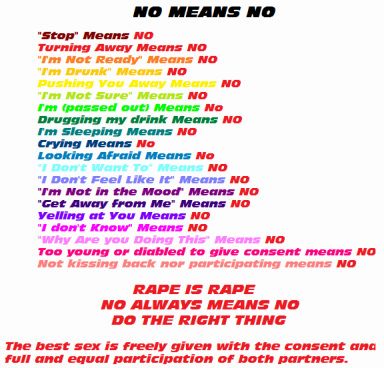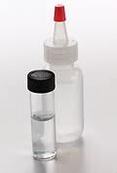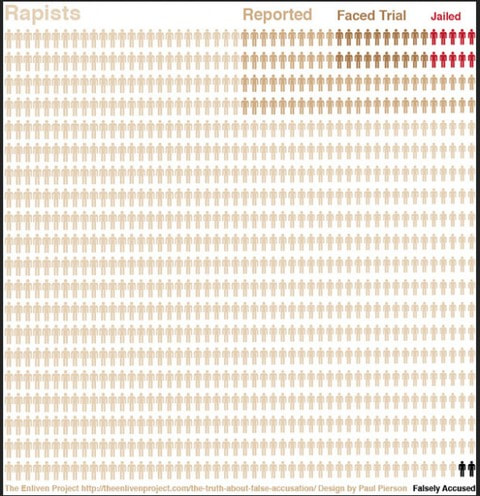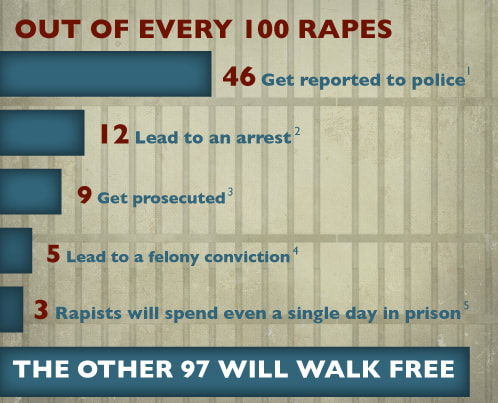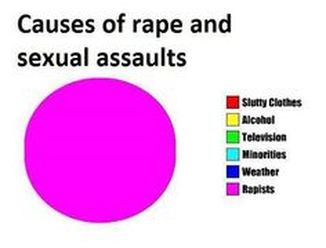What Is Sexual Trauma?
|
Sexual Trauma can is broadly seen as any unwanted, forced, abusive sexual act, or a sexual act occurring when the victim lacks the ability to give consent such as when they are a minor, disabled, under the influence of drugs or alcohol, sleeping, or unconscious.
There does not have to be penetration or pain for an experience to be traumatic. Many perpetrators will try to do things to their victims to make the sexual act less painful and more sexually gratifying so they can blame the victim and say they wanted it or trick themselves into thinking that they are not perpetrators despite them doing this act to a child or the disabled or someone who has already said NO or tried leave. Don't be fooled, the body has physiological reactions, that respond reflexively when touched. This is how the body was made. It is natural to respond t certain types of touch in certain ways, just like when the doctors tests your reflexes, you cannot control that response. It does not mean it is something that you liked or wanted. Perpetrators, however, like to use this against their victims to justify their horrifying behavior. There are several types of sexual trauma categories, some are overlapping and have similar name, these include: Child Sexual Abuse, Sexual Assault, Date Rape, Drug Facilitated Sexual Assault, Rape, Molestation, Incest, Sexual Harassment, Sex Trafficking, and revenge porn. Many sexual abuse experiences overlap with domestic violence or relationship abuse. For law enforcement data collection purposes, The FBI defines rape as: “The penetration, no matter how slight, of the vagina or anus with any body part or object, or oral penetration by a sex organ of another person, without the consent of the victim.” |
Understanding Consent
A common question survivors often grapple with is: Was this really rape? Was this sexual assault? An important part of recognizing this is first understanding consent. Watch this award winning video from Blue Seat Studios to get a better understanding about consent. Was consent freely given, not coerced? Better yet, was your consent enthusiastic? How do we know when there's enthusiastic consent? When both parties engage in equal levels of verbal and non-verbal participation, eye contact, desire- they are both IN IT so much that they are taking off their own clothes and not just waiting for you to undress them.
What's puzzling is how many people seem to know a family member or a friend that was sexually assaulted, but hardly anyone seems to know any perpetrators.
Sexual Trauma Symptoms: What to look for
Probably one of the most tragic things I see as a therapist are the individuals coming in for therapy whose symptoms were quite obviously suggestive of trauma, but no one had really noticed. Many times teens were labeled "bad" kids or "attention seekers," or even worse their cries of pain seemed invisible to the outside world. Sadly, most sexual abuse survivors tried to tell someone about their abuse early-on, but often their words were ignored, minimized, or turned against them.
If someone tells you they have been sexually abused, BELIEVE THEM, there is very little to gain, and often much to risk by disclosing sexual abuse. Research by the Bureau of Justice Statistics shows that only 2% of alleged rapes are ever estimated to be false, which is the same percentage of false reports as every other type of crime. This means that despite people accusing sexual abuse victims of lying, they aren't any more likely to lie about it than someone is who lies about their home being robbed.
Unfortunately, there is no absolute way to confirm if someone has been sexually abused/assaulted without catching the criminal in the act or getting the criminals DNA, which does not happen nearly as often or as easily as tv or movies depict. Moreover, a majority of sexual assault cases are not matters of identifying the alleged perpetrators (in which DNA identification would carry more meaning), but rather disputes over whether the incident was consensual. However, as a concerned parent, partner, friend, or family member.
Warning signs to look out for may include:
If someone tells you they have been sexually abused, BELIEVE THEM, there is very little to gain, and often much to risk by disclosing sexual abuse. Research by the Bureau of Justice Statistics shows that only 2% of alleged rapes are ever estimated to be false, which is the same percentage of false reports as every other type of crime. This means that despite people accusing sexual abuse victims of lying, they aren't any more likely to lie about it than someone is who lies about their home being robbed.
Unfortunately, there is no absolute way to confirm if someone has been sexually abused/assaulted without catching the criminal in the act or getting the criminals DNA, which does not happen nearly as often or as easily as tv or movies depict. Moreover, a majority of sexual assault cases are not matters of identifying the alleged perpetrators (in which DNA identification would carry more meaning), but rather disputes over whether the incident was consensual. However, as a concerned parent, partner, friend, or family member.
Warning signs to look out for may include:
- Depression
- Withdrawing socially
- Isolation
- Tearfulness
- Suicidal threats or attempts
- Impulsive acting out behaviors (getting into fights, or risky sexual behavior)
- Substance abuse (especially at a young age)
- Self-injury (cutting, scratching, burning, head banging, or hitting oneself)
- Eating disorder behaviors
- Excessive bathing or showering
- Regressive behaviors (acting like they did at early ages in child development such as bed-wetting, use of baby talk, or wanting to sleep with the light on, or not wanting to sleep alone)
- Changes in school or work performance (A student suddenly becomes C student; A good worker suddenly has difficulty making deadlines; A college student suddenly starts falling asleep in class or seems distant and distracted and stops turning in homework or going to class)
- Difficulty concentrating
- Poor sleep
- Change in appetite
- Memories missing from the abuse incident
- Changes in the way they see the world/others/themselves in distorted or unhealthy ways
- Nightmares
- Flashbacks
- Seeming emotionally shut down, numb, or like a zombie
- Anxiety/panic attacks
- Irritability/ anger
- shame
- guilt
- self-blame
- problems with trust
- problems with relationships
- sexual or intimacy concerns or avoidance
- Dissociation or spacing out/checking out, disconnecting from the present reality
Drug Facilitated Sexual Assault Symptoms (note: one of these is not an indicator alone, but a combination of multiple factors is a stronger indicator that someone may have drugged your drink, a practice that is much more common than people are aware of. Bartenders and servers are sometimes participants in this crime): |
- Severe memory blackouts or it feels like pieces of your memory have been erased and fade in and out over a span of a few hours. Sometimes there is an abrupt cutoff in memories.
- You drank a small amount or the same amount as usual, but the alcohol seemed to effect you much more than it ever has before
- The following day you find yourself feeling dizzy, nauseous, and sick, but worse than any hangover you have ever experienced. You may feel violently ill or feel sick for several days afterward.
- The "hangover" you feel does not make sense with the amount of alcohol you consumed, as you only recall having 1-2 drinks.
- You wake up in a strange place or with someone you do not know
- Your behavior that night is not at all consistent with who you normally are or how you normally act or is inconsistent with your belief system (you may have never had sex before or only had one sexual partner, or believe in monogamy, but you seemed to be acting overly sexual that night and went home with a stranger).
- Physical evidence suggestive of assault: missing clothing items or clothes put on wrong, blood in your underwear or on the bed, bruising on your body, your tampon has been pushed inside you, anal tearing or bleeding, pain with urination or defecation, and pregnancy.
- Having a sense that something just wasn't right about that night, but not being able to recall it
- In some case, there may be signs of attempts to contact others for help at some point during the night or in the morning
- Fear, Tearfulness, Self-blame and confusion afterward
- Some people have flashbulb memories during the assault, where they recall flashes of it happening, or being placed in a shower afterward. In some cases they they report being unable to move at all, others say they were like zombies going the motions but unable to think for themselves.
- The person that you were with says things that do not sound like something someone would say if the act was consensual "sorry," "you like this, don't you?," "This is what you wanted, isn't it?"
www.projectghb.org
What Should I do if I have Just Been Raped or Sexually Assaulted?
- The first concern is your safety: Are you in a safe place? Can you get to one? Can you contact someone that can help you get to one? Call 911, if necessary.
- If you are in St. Louis You can call the YWCA Crisis Line at 314-531-7273 for emergency questions and assistance. Nationally, you can call the sexual assault crisis line 1-800-656-4673 or go to the RAINN website for more information.
- Go to the hospital for a medical exam. A victim advocate with the Sexual Assault Response Team (SART) will be called to be at your side to support you through the process and help answer your questions. A specially trained Sexual Assault Nurse Examiner (SANE) will be at your side to help perform the medical exam and evidence collection. If you are not in the St. Louis area, you may ask for a SANE nurse and an advocate to be present in the facility you are at, though some areas do not have systems in place to readily access these resources. Emergency contraception and STD/STI preventive treatments options should be discussed. Even if you think you are fine, you should still seek medical care, as some injuries may be internal and can become worse if left untreated. You should know that just because you are going to the hospital for an exam does not mean that you must submit to a rape/evidence kit. You always have the option to say NO, even if the medical staff says it is standard protocol. Evidence collection kits may be particularly valuable to investigators when the perpetrator is unknown to the victim. Some controversy around kit testing exists with regard to victim privacy exists. http://wendymurphylaw.com/new-guidelines-have-wrong-forensic-focus/
- If you suspect you have been drugged and sexually assaulted, submit a urine sample to the hospital or police immediately upon arrival regardless of whether they ask, most drugs used in sexual assault will be gone from your system after 12 hours. Tell the hospital they need to test for GHB and Rohypnol and drugs used in drug facilitated rape specifically. Many hospitals do not know to do this correctly yet.
- It will be your option as to whether or not you want to file a police report. Just because you are at the hospital and have an evidence collection kit done, does not mean that you are filing a police report. As an adult, that decision is up to you how you wish to proceed. Many websites will tell you "do not bathe or shower" or attempt to wash or discard the clothing you were wearing at the time of the assault. From the police perspective, the sexual abuse survivor is seen as a "crime scene." As awful and dehumanizing as it sounds, for the court process, this IS helpful advice. However, you should know that just because you did not do these things does not mean you did anything bad or even unusual, it simply means you responded that way people do when they have just been through something traumatic. When people experience trauma, their ability to think clearly gets impaired because of the limited amount of blood flow to the frontal portions of the brain. The blood instead flows to the back of the brain responsible for basic elements of survival only (heart rate, breathing, etc) and as a result, they often respond reflexively and impulsively, and the ability to think critically is disabled. It is only days and weeks afterward that their vision suddenly becomes "clear" and they see all the things they wish they could have done. Keep in mind though, you did the best you could with the resources you had available at the time. Your body made the best decision for your based on the circumstances you were in, for how it could best try to keep you alive.
- If it has been a few weeks since your sexual assault, you should make an appointment to see your doctor as soon as possible. You will want to get in to see your gynecologist for follow-up exams, pregnancy, and STD testing at 3, 6, and 12 months post-trauma.
- At any point, you should try to find someone you trust to talk to about what has happened. You do not have to go through this alone. It is up to you whether or not you want to seek therapy, though as a therapist I am biased in the benefits I see it has, I do believe an important part of trauma recovery is regaining a sense of control over your life, which means that people cannot force you into therapy and expect good results.
http://nctsn.org/sites/default/files/assets/pdfs/sex_abuse_disclosure.pdf
Your Victim Privacy "Miranda" Rights
"You have the right to refuse to answer questions not directly related to this criminal investigation which seek privileged or private information including sexual history and orientation, medical or mental health history, HIV status, past drug or alcohol treatment, conversations with a spouse, attorney, religious advisor, crisis counselor, mental health or medical care provider. You have the right to seek legal counsel." -By Wendy J Murphy, New England Law, Boston 617-422-7410
Media Resources and Videos
But I love Him: Protecting Your Teen Daughter from Controlling, Abusive Relationships https://www.amightygirl.com/but-i-love-him
Saving Beauty from the Beast: How to Protect Your Teen Daughter from an Unhealthy Relationship Https://www.amightygirl.com/saving-beauty-from-the-beast
Saving Beauty from the Beast: How to Protect Your Teen Daughter from an Unhealthy Relationship Https://www.amightygirl.com/saving-beauty-from-the-beast
Books related to Sexual Trauma Awareness and Recovery
The Courage to Heal Workbook, Laura Davis (Writing Activities Fillable)
Our Guys, Bernard Lefkowitz
Reproducing Rape through courtroom talk, Gregory Matoesian
The Sexual Healing Journey, Wendy Maltz
Victims No Longer: A Classic Guide for Men Recovering from Childhood Sexual Abuse, Mike Lew
Blaming the Victim, William Ryan
Boundaries: Where you end and I begin, Anne Katherine
From Diapers to Dating, Debra Haffner
Brave Bart, Caroline Sheppard (for kids)
A Very Touching Book, Jan Hindman (for Kids)
My Story, Elizabeth Smart (memoir)
I know Why the caged bird sings, Maya Angelou (Memoir)
Healing the Incest Wound, Christine Courtois
I Never Called it Rape, Robin Warshaw
Recovering from Rape, Linda E. Ledray
Coersive Control: How Men Entrap Women in Personal Life, Evan Stark
The Body Betrayed, Babette Rothschild
Why Does He DO That? Inside the Minds of Angry and Controlling Men, Lundy Bancroft
The Joyous Recovery: A New Approach to Emotional Healing and Wellness, Lundy Bancroft
When Dad Hurts Mom: Helping Your Children Heal the Wounds of Witnessing Abuse, Lundy Bancroft
Should I stay or Should I go, Lundy Bancroft
Counseling People with Developmental Disabilities who Have Been Sexually Abused, Sheila Mansell & Dick Sobsey
Our Guys, Bernard Lefkowitz
Reproducing Rape through courtroom talk, Gregory Matoesian
The Sexual Healing Journey, Wendy Maltz
Victims No Longer: A Classic Guide for Men Recovering from Childhood Sexual Abuse, Mike Lew
Blaming the Victim, William Ryan
Boundaries: Where you end and I begin, Anne Katherine
From Diapers to Dating, Debra Haffner
Brave Bart, Caroline Sheppard (for kids)
A Very Touching Book, Jan Hindman (for Kids)
My Story, Elizabeth Smart (memoir)
I know Why the caged bird sings, Maya Angelou (Memoir)
Healing the Incest Wound, Christine Courtois
I Never Called it Rape, Robin Warshaw
Recovering from Rape, Linda E. Ledray
Coersive Control: How Men Entrap Women in Personal Life, Evan Stark
The Body Betrayed, Babette Rothschild
Why Does He DO That? Inside the Minds of Angry and Controlling Men, Lundy Bancroft
The Joyous Recovery: A New Approach to Emotional Healing and Wellness, Lundy Bancroft
When Dad Hurts Mom: Helping Your Children Heal the Wounds of Witnessing Abuse, Lundy Bancroft
Should I stay or Should I go, Lundy Bancroft
Counseling People with Developmental Disabilities who Have Been Sexually Abused, Sheila Mansell & Dick Sobsey
Movies the highlight the Extent and Impact of Sexual Trauma or Recovery
Precious - incest/rape/dissociation
Spotlight - child sex abuse/ priest abuse/ male sexual abuse
Forrest Gump- child sexual abuse/maladaptive coping
Speak - sexual assault/depression
North Country - sexual harassment
The Prince of Tides -male rape
The Invisible War- military trauma
Mysterious Skin- male sexual abuse/ grooming
The Hunting Ground- campus sexual assault
Antoine Fischer- male sexual abuse/ recovery
Boys Don't Cry - transgender issues/rape/ revictimization process
Born Into Brothels -trafficking/ sex slavery
Girl with a Dragon Tattoo- rape
Bastard out of Carolina -child sexual abuse
I know my First name is Steven- male sexual abuse
The Accused- rape/ revictimization
Capturing the Friedmans- perpetrators
The General's Daughter- military rape
Black Snake Moan- PTSD/ rape
Very Young Girls- Sex Trafficking
Apps and online support
My Plan -Relationship health/abuse warning signs
Eve.-women’s health tracker and connect to online group therapy resources
I feel like shit - Depression, self-care help
Mindfulness Daily - Self-care help
Woebot-Self-care help
Headspace- Self-Care help
Calm guided meditation app
Facebook sexual abuse support groups: Talking Trees
RestfulRambles ASMR Videos on Youtube/TikTok

